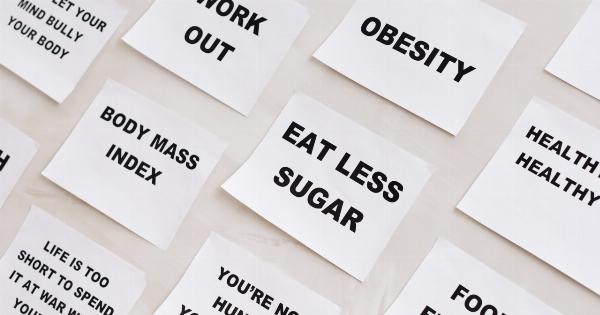Are you tired of trying different diets and weight loss plans with no success? Have you thought about incorporating healthy eating habits into your lifestyle instead? Making healthier food choices and maintaining a balanced diet can not only help you lose weight but also improve your overall health and well-being.
Understanding Calories
One of the first steps in creating a healthy eating plan is to understand calories. Calories are a unit of energy that our bodies use to function. Consuming more calories than your body burns can result in weight gain.
When looking to lose weight, you need to create a calorie deficit by burning more calories than you consume.
However, it’s important to note that not all calories are created equal. The quality of calories consumed is equally as important as the quantity.
Consuming foods with a high nutrient density like fruits, vegetables, and whole grains can provide your body with the necessary vitamins, minerals, and fiber it needs while also helping to keep you feeling fuller for longer periods of time.
The Importance of Portion Control
Portion control is another important aspect of healthy eating habits. Eating too much of anything, even healthy foods, can lead to weight gain. It’s essential to eat the correct portion sizes for your individual body needs.
One way to achieve this is by using a food scale or measuring cups to ensure you’re consuming the recommended serving sizes of each food group.
Another helpful tip for portion control is to eat slowly and mindfully. Take the time to savor each bite, and pay attention to how your body feels as you eat. Stopping when you feel full is a great way to ensure you’re not overeating.
Building a Healthy Plate
When it comes to building a healthy plate, it’s important to include a variety of food groups to ensure you’re meeting all of your nutritional needs.
A simple way to do this is by following the MyPlate guidelines, which recommend filling half your plate with fruits and vegetables and dividing the remaining half between lean proteins and whole grains.
Incorporating healthy fats like avocado and nuts into your diet is also important. Healthy fats can help lower your LDL cholesterol levels and reduce your risk of heart disease.
However, it’s essential to consume them in moderation as they are still high in calories.
The Benefits of Meal Planning
Meal planning is a great way to ensure you’re making healthy food choices and sticking to a balanced diet. By planning out your meals for the week, you can avoid the temptation to eat out and grab fast food that can derail your weight loss goals.
When meal planning, it’s important to include a variety of food groups and flavors. This can help you curb cravings and prevent overeating. Don’t be afraid to try new recipes and experiment with different flavor combinations.
The Role of Water in Weight Loss
Drinking plenty of water is essential to weight loss and overall health. Water helps to keep your body hydrated, which can help keep you feeling fuller and more energized throughout the day.
One way to ensure you’re drinking enough water is to carry a refillable water bottle with you throughout the day. Aim for at least eight glasses of water a day, and more if you are engaging in physical activity or live in a hot climate.
The Importance of Mindset
Adopting a positive mindset is essential to achieving long-term success with healthy eating habits. Instead of focusing on what you’re restricting from your diet, focus on the health benefits of the foods you’re incorporating.
Another important aspect of mindset is not beating yourself up over small setbacks or slip-ups. Instead, view them as learning opportunities and use them to motivate yourself to do better moving forward.
The Bottom Line
Incorporating healthy eating habits into your lifestyle is a great way to lose weight and improve your overall health.
By understanding calories, practicing portion control, building a healthy plate, meal planning, staying hydrated, and adopting a positive mindset, you can create long-lasting healthy habits that will help you reach your weight loss goals and maintain them over time.





























